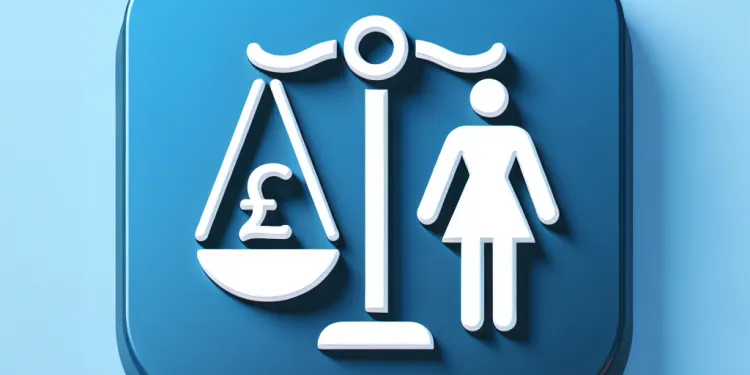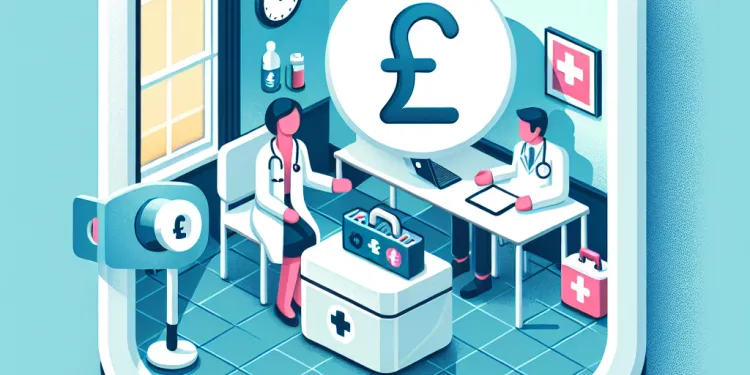
Find Help
More Items From Ergsy search
-

Can Ozempic cause serious side effects?
Relevance: 100%
-

What are the side effects of Ozempic?
Relevance: 84%
-

What are common side effects of Ozempic?
Relevance: 79%
-

What are the common side effects of Ozempic?
Relevance: 78%
-

Is nausea a frequent side effect of Ozempic?
Relevance: 73%
-

Are there any serious risks associated with Ozempic?
Relevance: 73%
-

Are there any long-term effects of using Ozempic?
Relevance: 58%
-

What are the less common but serious side effects of weight loss drugs?
Relevance: 57%
-

What is Ozempic?
Relevance: 57%
-

What is Ozempic?
Relevance: 55%
-

How can the side effects of Ozempic be managed?
Relevance: 54%
-

Can Ozempic lead to dehydration?
Relevance: 53%
-

What problems is Ozempic known to cause?
Relevance: 51%
-

Can Ozempic be used for weight loss?
Relevance: 50%
-

What are the side effects of Paracetamol?
Relevance: 49%
-

Is Ozempic safe for everyone to use?
Relevance: 49%
-

Can Ozempic cause severe gastrointestinal issues?
Relevance: 48%
-

Can Ozempic affect vision?
Relevance: 48%
-

Can Ozempic be taken with food?
Relevance: 48%
-

How often do you take Ozempic?
Relevance: 48%
-

What are the side effects of Ibuprofen?
Relevance: 48%
-

What are common side effects of antibiotics?
Relevance: 47%
-

How does Ozempic help with weight loss?
Relevance: 47%
-

Are there any side effects to the flu vaccine?
Relevance: 47%
-

What are the side effects of Aspirin?
Relevance: 47%
-

Can non-diabetic individuals use Ozempic for weight loss?
Relevance: 46%
-

How does Ozempic work?
Relevance: 46%
-

What should I discuss with my doctor before starting Ozempic?
Relevance: 46%
-

What are the common side effects of vaccines?
Relevance: 46%
-

Who should not take Ozempic?
Relevance: 45%
-

What are the common side effects of Abiraterone?
Relevance: 45%
-

What are common side effects of Wegovy?
Relevance: 45%
-

Are there any common side effects of Mounjaro?
Relevance: 45%
-

Do I need a prescription for Ozempic?
Relevance: 45%
-

What are the side effects of Botox?
Relevance: 45%
-

What are common side effects of Baxdrostat?
Relevance: 44%
-

What are common side effects of CBD?
Relevance: 44%
-

What should I discuss with my doctor before starting Ozempic?
Relevance: 44%
-

What are the side effects of Paillon treatment?
Relevance: 44%
-

Can I take Ozempic with other diabetes medications?
Relevance: 44%
Understanding Ozempic and Its Purpose
Ozempic is a medication commonly prescribed to help manage type 2 diabetes. It belongs to a class of drugs known as GLP-1 receptor agonists. These medications work by mimicking the effects of the glucagon-like peptide-1 hormone, which helps to regulate blood sugar levels. They stimulate insulin release, decrease glucose production in the liver, and slow down digestion to prevent spikes in blood sugar.
Potential Side Effects of Ozempic
While Ozempic is effective for many individuals with type 2 diabetes, it can cause side effects. Most people experience only mild or moderate reactions, which often subside as their bodies adjust to the medication. Common side effects include nausea, vomiting, diarrhea, stomach pain, and decreased appetite. Though these symptoms can be uncomfortable, they are generally not serious and tend to improve over time.
Serious Side Effects of Ozempic
In some cases, Ozempic may lead to more serious side effects. One of the significant concerns is pancreatitis, an inflammation of the pancreas, which can be life-threatening. Symptoms of pancreatitis include severe abdominal pain, nausea, vomiting, and fever. If you experience these symptoms, medical attention should be sought immediately.
Another serious potential side effect is a possible increased risk of thyroid tumors, including medullary thyroid carcinoma (MTC). While this risk is currently identified based on animal studies, human data is still being evaluated. It is crucial for patients with a family history of thyroid cancer to inform their healthcare provider before starting Ozempic.
Who Should Avoid Ozempic?
Ozempic is not suitable for everyone. Individuals with a personal or family history of MTC or Multiple Endocrine Neoplasia syndrome type 2 (MEN 2) should not take Ozempic. Furthermore, it should be used cautiously in people with a history of pancreatitis or kidney problems. As always, a healthcare provider’s assessment is critical to determine the medication's appropriateness.
Monitoring and Consultation
When taking Ozempic, regular monitoring is essential to ensure that the medication is working effectively and not causing adverse effects. Blood sugar levels should be checked regularly, and any unusual symptoms should be reported to a healthcare provider. Patients should keep regular appointments to discuss their progress and any concerns.
Conclusion
Ozempic is a valuable treatment option for many individuals with type 2 diabetes, offering benefits that often outweigh the risks. However, it is important to be aware of the potential for serious side effects and to work closely with healthcare providers to mitigate these risks. By doing so, patients can manage their condition safely and effectively.
Understanding Ozempic and Its Purpose
Ozempic is a medicine used to help people with type 2 diabetes. It is a type of drug called a GLP-1 receptor agonist. This medicine helps control sugar levels in the blood. It helps the body release insulin and slows down how fast food leaves the stomach, which stops blood sugar from rising too quickly.
Potential Side Effects of Ozempic
Ozempic works well for many people with type 2 diabetes, but it can have side effects. Most people have mild effects that get better as their body gets used to the medicine. Common side effects include feeling sick to your stomach, throwing up, diarrhea, stomach ache, and not feeling as hungry. While these can be uncomfortable, they usually are not dangerous and improve after some time.
Serious Side Effects of Ozempic
Sometimes, Ozempic can cause more serious side effects. One serious problem is pancreatitis, which is an inflammation of the pancreas and can be very dangerous. Signs of pancreatitis are bad stomach pain, feeling sick, throwing up, and fever. If you have these signs, see a doctor right away.
Ozempic might also increase the chance of thyroid tumors, including a rare type called medullary thyroid carcinoma (MTC). This is based on results from animal studies, and more research is being done on humans. If someone in your family had thyroid cancer, tell your doctor before taking Ozempic.
Who Should Avoid Ozempic?
Not everyone should take Ozempic. People with a personal or family history of MTC or Multiple Endocrine Neoplasia syndrome type 2 (MEN 2) should not use this medicine. Also, people who have had pancreatitis or kidney issues should be careful. Always talk to a doctor to see if Ozempic is right for you.
Monitoring and Consultation
If you are taking Ozempic, it is important to check that the medicine is working well and not causing bad effects. You should check your blood sugar levels often and tell your doctor if you feel anything unusual. Make regular doctor appointments to talk about how you are doing and any worries you have.
Conclusion
Ozempic can be a helpful treatment for many people with type 2 diabetes, providing benefits that are often greater than the risks. It is important to know about possible serious side effects and to work with your doctor to reduce these risks. By doing this, patients can manage their diabetes safely and feel better.
Frequently Asked Questions
Can Ozempic cause serious side effects?
Yes, Ozempic can cause serious side effects in some individuals. It's important to discuss any concerns with your healthcare provider.
What are some serious side effects of Ozempic?
Some serious side effects include pancreatitis, thyroid tumors, kidney problems, and serious allergic reactions.
Is pancreatitis a risk with Ozempic?
Yes, pancreatitis has been reported in some patients taking Ozempic. Symptoms include severe abdominal pain that may radiate to the back.
Can Ozempic cause thyroid tumors?
Ozempic has been shown to cause thyroid C-cell tumors in rodents, but it's not known if this occurs in humans. Discuss the risks with your doctor.
What kidney problems can Ozempic cause?
Ozempic may cause worsening of kidney function and acute kidney injury in some patients, especially if they become dehydrated.
What are the symptoms of a serious allergic reaction to Ozempic?
Symptoms include swelling of the face, lips, tongue, or throat, difficulty breathing, and rash. Seek immediate medical attention if these occur.
Can Ozempic cause changes in vision?
Some patients may experience changes in vision, especially those with a history of diabetic retinopathy.
Are there any heart-related side effects of Ozempic?
While Ozempic can be beneficial for cardiovascular health, there is a risk of increased heart rate or palpitations in some individuals.
What should I do if I experience side effects from Ozempic?
Contact your healthcare provider immediately if you experience any severe or concerning symptoms while on Ozempic.
Can I stop Ozempic if I experience side effects?
Do not stop taking Ozempic without consulting your healthcare provider, as they may need to adjust your treatment plan.
How can the risk of side effects be minimized when taking Ozempic?
Follow your healthcare provider’s instructions, monitor for side effects, and report any unusual symptoms immediately.
How common are serious side effects with Ozempic?
Serious side effects are relatively uncommon but understanding the potential risks is important for monitoring your health.
What should I tell my doctor before starting Ozempic?
Inform your doctor about any medical history, especially concerning pancreas, kidneys, thyroid, and allergies.
Can Ozempic interact with other medications?
Yes, Ozempic may interact with other medications, so it is crucial to tell your doctor about all drugs you are taking.
Can gastrointestinal issues be a serious side effect of Ozempic?
Some gastrointestinal issues can be serious, such as severe nausea and vomiting that may lead to dehydration or acute kidney injury.
Are there risks for diabetic retinopathy with Ozempic?
Patients with a history of diabetic retinopathy should be monitored closely, as Ozempic may worsen the condition.
What monitoring is required when using Ozempic?
Regular monitoring of blood glucose levels, kidney function, and eye health is recommended to manage any potential side effects.
Does Ozempic have any impact on mental health?
Ozempic has not been directly linked to mental health issues, but report any mood changes to your healthcare provider.
What instructions are given if a dose is missed?
Follow the instructions provided by your healthcare provider if a dose of Ozempic is missed; do not double doses without guidance.
Where can I find more information about the safety of Ozempic?
Consult your healthcare provider and refer to the medication guide provided with the prescription for detailed safety information.
Can Ozempic cause bad effects?
Yes, some people can have bad side effects from Ozempic. Talk to your doctor if you are worried.
What bad effects can Ozempic have?
Some bad things that can happen are: sore tummy (pancreatitis), lumps in the neck (thyroid tumors), problems with kidneys, and strong allergies.
Can Ozempic cause pancreatitis?
Pancreatitis is when the pancreas gets swollen and hurts. If you feel bad stomach pain, tell a doctor. It's important to know if Ozempic could cause this. Ask your doctor or nurse about the risks. They can help you understand. You can also use picture cards or apps to help explain medical words.
Yes, some people taking Ozempic might get a sickness called pancreatitis. It can make your belly hurt a lot, and the pain might go to your back.
Can Ozempic cause lumps in the thyroid?
Some people wonder if Ozempic, a medicine, can cause thyroid lumps. The thyroid is a small gland in your neck. Lumps in the thyroid can be called tumors.
If you are worried about this, talk to your doctor. They can give you the best advice.
Using a dictionary can help you understand tough words. You can also ask someone you trust to explain things.
Ozempic is a medicine. In some animals, it can cause lumps in a part of their body called the thyroid. We do not know if this happens to people. Talk to your doctor about the risks.
Can Ozempic hurt your kidneys?
Ozempic can make kidney problems worse for some people. This might happen if a person gets too thirsty or doesn't drink enough water.
What happens if you have a bad allergy to Ozempic?
Look out for these signs: your face, lips, tongue, or throat can get bigger. It might be hard to breathe, and you could get a rash. If this happens, get help from a doctor right away.
Can Ozempic change how you see?
Some people might notice changes in their eyesight. This is more common for people who have had eye problems from diabetes before.
Can Ozempic cause heart problems?
Ozempic can be good for your heart. But sometimes, it can make your heart beat faster or feel funny.
What do I do if Ozempic makes me feel unwell?
If you feel unwell after taking Ozempic, tell an adult or your doctor.
They can help you decide what to do next. Here are some tips:
- Talk to someone you trust. They can help you understand your feelings.
- Write down how Ozempic makes you feel. This helps you remember.
- Ask your doctor for simple words if you don’t understand. They can explain.
Tools that might help:
- Draw a picture of how you feel. Pictures show feelings well.
- Use a feelings chart. It helps you choose words to say how you feel.
- Ask someone to read with you. They can help explain things.
Call your doctor right away if you feel very sick or worried while taking Ozempic.
Can I stop taking Ozempic if it makes me feel bad?
Do not stop taking Ozempic without talking to your doctor. Your doctor might need to change your treatment plan.
How can I lower the chance of side effects with Ozempic?
Here are some tips to help:
- Talk to your doctor about how to take the medicine.
- Start with a small dose if your doctor says it's okay.
- Take the medicine at the same time each week.
- Eat healthy foods and drink lots of water.
- Tell your doctor if you feel sick or have any problems.
- Ask a friend or family member to help you remember your doses.
Listen to what your doctor says. Watch for any bad reactions to the medicine. Tell your doctor right away if you feel anything strange.
How often do serious problems happen with Ozempic?
It’s rare for people to have serious problems when taking Ozempic. Most people don’t get bad side effects.
If you are worried, talk to your doctor. They can help and give you advice.
Using a pill organizer can help you remember to take your medicine.
A diary or app can also remind you when to take Ozempic.
Serious side effects do not happen often, but it is important to know about them so you can watch your health.
What should I tell my doctor before starting Ozempic?
Before you start taking Ozempic, tell your doctor about:
- Any health problems you have.
- If you are taking any other medicines.
- If you are allergic to any medicines.
- If you are pregnant or plan to become pregnant.
- If you are breastfeeding.
You can write down important information to share with your doctor. You can also ask a friend or family member to come with you for support.
Tell your doctor about any health problems you have had before. This includes problems with your pancreas, kidneys, thyroid, and any allergies you have.
Can Ozempic mix with other medicines?
Do you take Ozempic and other medicines? They might mix and cause problems.
Tell your doctor about all the medicines you take. This helps them keep you safe.
If you have trouble reading, ask someone to help you. You can also use text-to-speech tools. They read out loud to you.
Yes, Ozempic can change how other medicines work. So, it's very important to tell your doctor all the medicines you take.
Can Ozempic cause tummy problems?
Sometimes, tummy problems can be serious. If you feel very sick or if you keep throwing up, you might lose a lot of water. This can make you very weak, and it can even hurt your kidneys.
Can Ozempic cause eye problems for people with diabetes?
If you have diabetes, some medicines can affect your eyes. One of these medicines is called Ozempic. It is important to know if it can cause eye problems.
If you are worried about your eyes, here are some things you can do:
- Talk to your doctor about your eyes.
- Get your eyes checked by an eye doctor.
- Tell your doctor if you notice any changes in your vision.
It’s always good to ask questions and take care of your health.
If someone has had eye problems from diabetes, like diabetic retinopathy, they need to be watched carefully. Ozempic can make their eye problems worse.
Helpful tools: Ask your doctor to explain things in simple words. Always have someone with you to help remember what the doctor says. Bring a notebook to write down any important points.
What checks do you need when you use Ozempic?
When you take Ozempic, you need to have regular health checks. These checks help make sure the medicine is working well and is safe for you.
You should:
- Visit your doctor often. They will see how the medicine is working.
- Get your blood sugar tested. This tells if your sugar levels are okay.
- Pay attention to how you feel. Tell your doctor if you feel sick.
It’s good to:
- Write down how you feel every day. This can help your doctor know more.
- Ask someone you trust to help you keep track of appointments and tests.
It is important to check blood sugar, kidney health, and eye health often. This helps you stay healthy and catch any problems early.
Can Ozempic affect how you feel or think?
Ozempic has not been shown to cause mental health problems. But if you feel sad or your mood changes, tell your doctor.
What should you do if you forget to take your medicine?
If you miss your medicine dose, ask your doctor what to do. Do not take more medicine without asking first.
Where can I learn about staying safe with Ozempic?
You can find more facts about Ozempic's safety by:
- Asking your doctor or nurse. They know a lot about medicine.
- Reading the guide that comes with Ozempic. It has important information.
- Looking on the official Ozempic website.
These steps can help you understand how to use Ozempic safely.
Talk to your doctor. Look at the information that comes with your medicine for safety tips.
Useful Links
Have you found an error, or do you have a link or some information you would like to share? Please let us know using the form below.
-->
This website offers general information and is not a substitute for professional advice.
Always seek guidance from qualified professionals.
If you have any medical concerns or need urgent help, contact a healthcare professional or emergency services immediately.
Some of this content was generated with AI assistance. We’ve done our best to keep it accurate, helpful, and human-friendly.
- Ergsy carfully checks the information in the videos we provide here.
- Videos shown by Youtube after a video has completed, have NOT been reviewed by ERGSY.
- To view, click the arrow in centre of video.
- Most of the videos you find here will have subtitles and/or closed captions available.
- You may need to turn these on, and choose your preferred language.
- Go to the video you'd like to watch.
- If closed captions (CC) are available, settings will be visible on the bottom right of the video player.
- To turn on Captions, click settings .
- To turn off Captions, click settings again.
More Items From Ergsy search
-

Can Ozempic cause serious side effects?
Relevance: 100%
-

What are the side effects of Ozempic?
Relevance: 84%
-

What are common side effects of Ozempic?
Relevance: 79%
-

What are the common side effects of Ozempic?
Relevance: 78%
-

Is nausea a frequent side effect of Ozempic?
Relevance: 73%
-

Are there any serious risks associated with Ozempic?
Relevance: 73%
-

Are there any long-term effects of using Ozempic?
Relevance: 58%
-

What are the less common but serious side effects of weight loss drugs?
Relevance: 57%
-

What is Ozempic?
Relevance: 57%
-

What is Ozempic?
Relevance: 55%
-

How can the side effects of Ozempic be managed?
Relevance: 54%
-

Can Ozempic lead to dehydration?
Relevance: 53%
-

What problems is Ozempic known to cause?
Relevance: 51%
-

Can Ozempic be used for weight loss?
Relevance: 50%
-

What are the side effects of Paracetamol?
Relevance: 49%
-

Is Ozempic safe for everyone to use?
Relevance: 49%
-

Can Ozempic cause severe gastrointestinal issues?
Relevance: 48%
-

Can Ozempic affect vision?
Relevance: 48%
-

Can Ozempic be taken with food?
Relevance: 48%
-

How often do you take Ozempic?
Relevance: 48%
-

What are the side effects of Ibuprofen?
Relevance: 48%
-

What are common side effects of antibiotics?
Relevance: 47%
-

How does Ozempic help with weight loss?
Relevance: 47%
-

Are there any side effects to the flu vaccine?
Relevance: 47%
-

What are the side effects of Aspirin?
Relevance: 47%
-

Can non-diabetic individuals use Ozempic for weight loss?
Relevance: 46%
-

How does Ozempic work?
Relevance: 46%
-

What should I discuss with my doctor before starting Ozempic?
Relevance: 46%
-

What are the common side effects of vaccines?
Relevance: 46%
-

Who should not take Ozempic?
Relevance: 45%
-

What are the common side effects of Abiraterone?
Relevance: 45%
-

What are common side effects of Wegovy?
Relevance: 45%
-

Are there any common side effects of Mounjaro?
Relevance: 45%
-

Do I need a prescription for Ozempic?
Relevance: 45%
-

What are the side effects of Botox?
Relevance: 45%
-

What are common side effects of Baxdrostat?
Relevance: 44%
-

What are common side effects of CBD?
Relevance: 44%
-

What should I discuss with my doctor before starting Ozempic?
Relevance: 44%
-

What are the side effects of Paillon treatment?
Relevance: 44%
-

Can I take Ozempic with other diabetes medications?
Relevance: 44%


